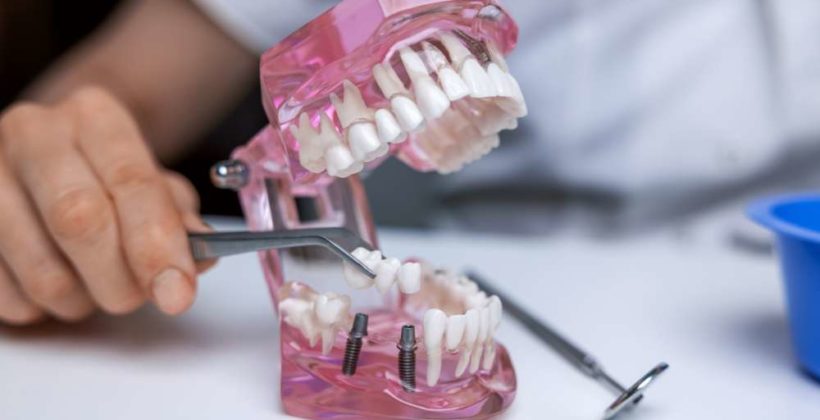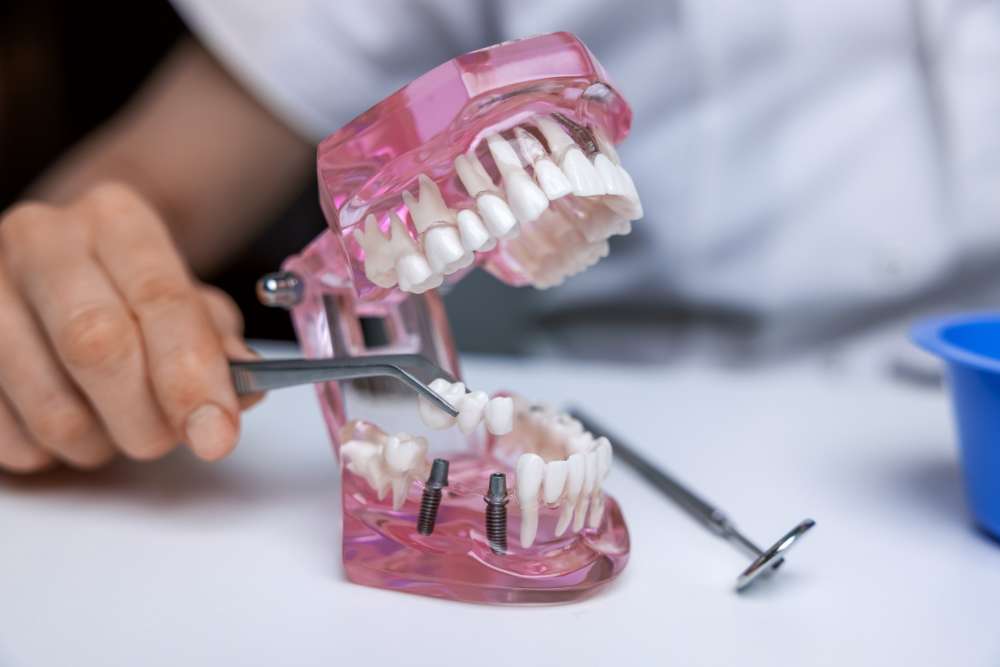

Tooth loss can affect anyone. Thankfully, there are ways to mitigate early signs of it within your control. If you’re experiencing tooth loss due to age or hygienic reasons, various solutions exist to help replace missing teeth. At Midland Bay Dental, we specialize in dental bridges and implants. Here are the key differences between them so you can decide which option is right for you: dental bridges vs implants.
In certain situations, extracting a tooth to prevent harm to the nearby teeth, bone, and gums becomes necessary. In such cases, patients have several choices to fill the gap made by the extracted tooth. Partial dentures, dental bridges, and dental implants are all designed to replace missing teeth, but each serves a distinct purpose.
Dental Bridges: An Overview
Dental bridges are prosthetic devices that fill the gap created by one or more missing teeth. They consist of artificial teeth held in place by dental crowns on adjacent natural teeth or implants. Bridges are a non-invasive solution, making them popular for those looking to restore their smile without surgery.
Dental Implants: An Overview
Dental implants, on the other hand, are artificial tooth roots surgically implanted into the jawbone. They serve as a stable foundation for attaching prosthetic teeth. Implants are known for their longevity and natural feel, making them a top choice for individuals seeking a more permanent solution to tooth loss.
Comparing Durability
One key factor when choosing between dental bridges and implants is durability. Dental implants are typically more durable and long-lasting. Proper care can last a lifetime, while dental bridges might need replacement every 10 to 15 years.
Aesthetics and Natural Feel
Dental implants closely mimic the look and feel of natural teeth. They offer superior aesthetics, as they stand alone without needing support from adjacent teeth. In contrast, although visually pleasing, dental bridges may provide a different level of naturalness.
Maintenance and Long-Term Care
Dental bridges require regular cleaning and maintenance, similar to natural teeth. Implants, on the other hand, are easier to care for, as they don’t rely on adjacent teeth for support. Regular dental hygiene practices are usually sufficient for maintaining the health of dental implants.
Suitability for Different Cases
The choice between dental bridges and implants often depends on your individual circumstances. Dental bridges are a good option when the adjacent teeth are strong and healthy. Dental implants are preferable when the surrounding teeth are compromised or missing, as they don’t rely on adjacent teeth for support.
Are You A Candidate For Dental Implants or Bridges?
Dental bridges and dental implants are both effective solutions for replacing missing teeth. Your choice should be based on factors such as durability, aesthetics, cost, and your specific dental condition.
At Midland Bay Dental, we can help you choose the right option. Deciding between dental bridges vs implants can be daunting, but Dr. Ranny Sidhu can help midgate any questions or concerns you have. Call us at (705) 526-6441 or contact us through our website to book an appointment to discuss and assess your oral health care needs.
Midland Bay Dental: Your Trusted Dental Clinic
Did you know Midland Bay Dental specializes in dental services like dental implants, teeth bonding, dental cleanings and services for kids and seniors? Professional dentists and hygienists are here to serve you no matter what you need. Patient care is our priority and Dr. Ranny Sidhu will make the entire process as comfortable and pain-free as possible. Contact us today to make an appointment.
Follow Midland Bay Dental on Facebook.

Leave a Reply